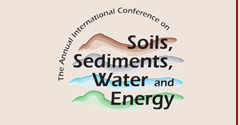Abstract
Activated charcoal can remove contaminants such as radionuclides from potable water. In northern Virginia, a community water well normally producing about 17 million gallons of water per year plus many small homesite water wells were used to study the monthly and seasonal variation in waterborne radon concentration, These wells were also used to study the ability of activated charcoal to capture the dissolved radon before it reaches the home occupants. It was found that the percentage of radon removal was related to the volume of treated water, the type of activated charcoal, and the length of time that the charcoal was used. In brief, if sufficient activated charcoal was placed in the water treatment tank, the removal of waterborne radon could reach 90 percent. While the intensity of radiation that escaped through the walls of the capture tank was esily detected, estimates indicate that the health risk was minimal while the capture tanks were in operation, and during the replacement of the used and radioactive charcoal.
Recommended Citation
Mose, Douglas and Metcalf, James
(2010)
"Radon Removal from Potable Water Supplied by Municipal and Single Home Water Wells,"
Proceedings of the Annual International Conference on Soils, Sediments, Water and Energy: Vol. 15, Article 14.
Available at:
https://scholarworks.umass.edu/soilsproceedings/vol15/iss1/14
